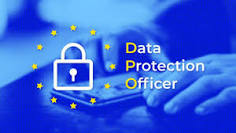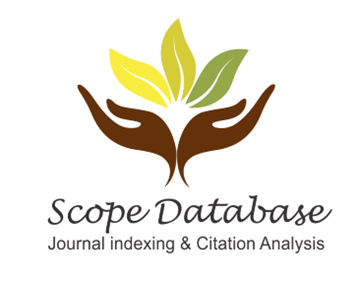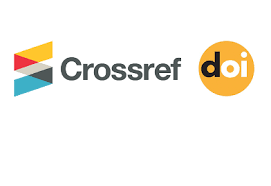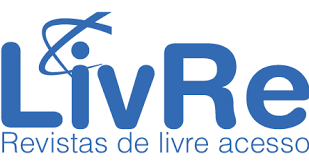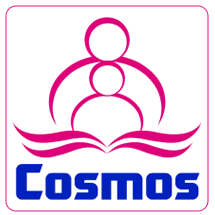ESTUDO DAS MUDANÇAS NO COMPORTAMENTO SEXUAL EM CASAIS PERANTE AS TECNOLOGIAS DIGITAIS
DOI:
https://doi.org/10.47820/jht.v3i1.46Palavras-chave:
tecnologias digitais, isolamento social, comportamento sexual, sintomas psiquiatricos, transtorno mentalResumo
As tecnologias digitais são meios populares de troca, comunicação e acesso à informação, e seu uso vem aumentando nos últimos anos. Estudos de mudanças no comportamento da sociedade são observados em função da nova forma de se comunicar e se relacionar. Para avaliar o comportamento sexual dos casais durante o período de isolamento social imposto pela pandemia e pelo uso frequente de Tecnologias Digitais (DTs), foi realizada uma pesquisa transversal online para obter informações sobre o comportamento sexual e o uso de DTs. Foram entrevistados 1.357 indivíduos por meio da ferramenta Google Forms, dos quais 616 estavam aptos a participar da pesquisa. De acordo com os dados obtidos, os TDs foram utilizados por 24,02% dos participantes do estudo, nos quais foi observada mudança no comportamento sexual nesse grupo que tem o hábito de usar DTs. A análise de regressão logística verificou associação entre as variáveis preditoras de mudanças significativas e positivas no comportamento sexual dos indivíduos, o que aponta para uma tendência à mudança no comportamento sexual dado o maior uso de TDs.
Downloads
Referências
ANAND, N.; THOMAS, C.; JAIN, P. A. et al. Internet use behaviors, internet addiction and psychological distress among medical college students: A multi centre study from South India. Asian Journal of Psychiatry, v. 37, p. 71–77, 2018. https://doi.org/10.1016/j.ajp.2018.07.020 DOI: https://doi.org/10.1016/j.ajp.2018.07.020
ANSHARI, M.; ALAS, Y.; HARDAKER, G. et al. Smartphone habit and behavior in Brunei: Personalization, gender, and generation gap. Computers in Human Behavior, v. 64, p. 719–727, 2016. https://doi.org/10.1016/j.chb.2016.07.063 DOI: https://doi.org/10.1016/j.chb.2016.07.063
BALHARA, Y. P. S.; SINGH, S.; SAINI, R. et al. Should Internet gaming disorder be considered a subtype of generalized problematic internet use? Findings from a study among medical college students. Perspect Psychiatr Care, v. 57, p. 272–278, 2021. https://doi.org/10.1111/ppc.12558 DOI: https://doi.org/10.1111/ppc.12558
BAUMEISTER, R. F. Social psychology and human sexuality: essential readings. Psychology Press, 2001.
BAUMEISTER, R. F.; CATANESE, K. R.; VOHS, K. D. Is There a Gender Difference in Strength of Sex Drive? Theoretical Views, Conceptual Distinctions, and a Review of Relevant Evidence. Pers Soc Psychol Rev., v. 5, p. 242–273, 2001. https://doi.org/10.1207/S15327957PSPR0503_5 DOI: https://doi.org/10.1207/S15327957PSPR0503_5
BE KNOWN THERAPY. The rise of virtual intimacy: pros and cons of digital connections. Be Known Therapy, 2023. https://www.beknowntherapy.com/blog/virtual-intimacy. Accessed 27 Dec 2023
BOONVISUDHI, T.; KULADEE, S. Association between Internet addiction and depression in Thai medical students at Faculty of Medicine, Ramathibodi Hospital. PLoS ONE, v. 12, p. e0174209, 2017. https://doi.org/10.1371/journal.pone.0174209 DOI: https://doi.org/10.1371/journal.pone.0174209
BRANDT, L.; LIU, S.; HEIM, C.; HEINZ, A. The effects of social isolation stress and discrimination on mental health. Transl Psychiatry, v. 12, p. 398, 2022. https://doi.org/10.1038/s41398-022-02178-4 DOI: https://doi.org/10.1038/s41398-022-02178-4
BZDOK, D.; DUNBAR, R. I. M. Social isolation and the brain in the pandemic era. Nat Hum Behav., v. 6, p. 1333–1343, 2022. https://doi.org/10.1038/s41562-022-01453-0 DOI: https://doi.org/10.1038/s41562-022-01453-0
CABELLO, F.; SÁNCHEZ, F.; FARRÉ, J. M.; MONTEJO, A. L. Consensus on Recommendations for Safe Sexual Activity during the COVID-19 Coronavirus Pandemic. JCM, v. 9, p. 2297, 2020. https://doi.org/10.3390/jcm9072297 DOI: https://doi.org/10.3390/jcm9072297
CAI, H.; XI, H.; ZHU, Q. et al. Prevalence of problematic Internet use and its association with quality of life among undergraduate nursing students in the later stage of COVID‐19 pandemic era in China. Am J Addict., v. 30, p. 585–592, 2021. https://doi.org/10.1111/ajad.13216 DOI: https://doi.org/10.1111/ajad.13216
CAPETILLO-VENTURA, N.; JUÁREZ-TREVIÑO, M. Internet addiction in university medical students. Medicina Universitaria, v. 17, p. 88–93, 2015. https://doi.org/10.1016/j.rmu.2015.02.003 DOI: https://doi.org/10.1016/j.rmu.2015.02.003
CÁRDENAS GARZA, S. A.; JANSSEN AGUILAR, R.; RUÍZ CHOW, Á. A. Problematic Internet Use and Personality Traits: Results in Working Age Adults. Revista Colombiana de Psiquiatría S0034745022000270, 2022. https://doi.org/10.1016/j.rcp.2022.03.002 DOI: https://doi.org/10.1016/j.rcp.2022.03.002
CARLI, V.; DURKEE, T.; WASSERMAN, D. et al. The Association between Pathological Internet Use and Comorbid Psychopathology: A Systematic Review. Psychopathology, v. 46, p. 1–13, 2013. https://doi.org/10.1159/000337971 DOI: https://doi.org/10.1159/000337971
CASTRO, Á.; BARRADA, J. R. Dating Apps and Their Sociodemographic and Psychosocial Correlates: A Systematic Review. IJERPH, v. 17, p. 6500, 2020. https://doi.org/10.3390/ijerph17186500 DOI: https://doi.org/10.3390/ijerph17186500
CDC. WHO downgrades COVID pandemic, says it’s no longer a global emergency. [S. l.]: CDC, 2023. https://www.cbc.ca/news/health/who-pandemic-not-emergency-1.6833321. Accessed 21 May 2023
CHING, S. M.; HAMIDIN, A.; VASUDEVAN, R. et al. Prevalence and factors associated with internet addiction among medical students - A cross-sectional study in Malaysia. Med J Malaysia, v. 72, p. 7–11, 2017.
CIPRIANO, M.; GIACALONE, A.; RUBERTI, E. Sexual behaviors during COVID-19: the potential risk of transmission. Archives of Sexual Behavior, v. 49, p. 1431–1432, 2020. DOI: https://doi.org/10.1007/s10508-020-01757-0
CONRADIE, C. The impact of technology on modern marriage. [S. l.: s. n.], 2023. https://medium.com/@cassandraconradie/the-impact-of-technology-on-modern-marriages-39e5dd510a02. Accessed 27 Dec 2023
COURTICE, E. L.; SHAUGHNESSY, K. Technology-mediated sexual interaction and relationships: a systematic review of the literature. Sexual and Relationship Therapy, v. 32, p. 269–290, 2017. https://doi.org/10.1080/14681994.2017.1397948 DOI: https://doi.org/10.1080/14681994.2017.1397948
DÖRING, N. How Is the COVID-19 Pandemic Affecting Our Sexualities? An Overview of the Current Media Narratives and Research Hypotheses. Arch Sex Behav., v. 49, p. 2765–2778, 2020. https://doi.org/10.1007/s10508-020-01790-z DOI: https://doi.org/10.1007/s10508-020-01790-z
FALEK, I.; ACRI, M.; DOMINGUEZ, J. et al. Management of depression during the perinatal period: state of the evidence. Int J Ment Health Syst., v. 16, n. 21, 2022. https://doi.org/10.1186/s13033-022-00531-0 DOI: https://doi.org/10.1186/s13033-022-00531-0
GAVIN, B. The Beginner’s Guide to Google Forms. How-to Geek [Viitattu 2210 2019] Saatavissa [s. n.], 2019. https://www howtogeek com/434570/the-beginners-guide-to-google-forms
GEDAM, S.; GHOSH, S.; MODi, L. et al. Study of internet addiction: Prevalence, pattern, and psychopathology among health professional undergraduates. Indian J Soc Psychiatry, v. 33, p. 305, 2017. https://doi.org/10.4103/ijsp.ijsp_70_16 DOI: https://doi.org/10.4103/ijsp.ijsp_70_16
GEDAM, S. R.; SHIVJI, I. A.; GOYAL, A. et al. Comparison of internet addiction, pattern and psychopathology between medical and dental students. Asian Journal of Psychiatry, v. 22, p. 105–110, 2016. https://doi.org/10.1016/j.ajp.2016.06.007 DOI: https://doi.org/10.1016/j.ajp.2016.06.007
GONÇALVES, L. L.; NARDI, A. E.; KING, A. S. Home office in the COVID-19 pandemic: Impacts on human behavior. Computers in Human Behavior, v. 29, p. 140–144, 2020.
GUEDES, E.; NARDI, A. E.; GUIMARÃES, F. M. C. L. et al. Social networking, a new online addiction: a review of Facebook and other addiction disorders. Medical Express, v. 3, 2016. DOI: https://doi.org/10.5935/MedicalExpress.2016.01.01
HARRIS, K. M.; ABOUJAOUDE, E. Online Friendship, Romance, and Sex: Properties and Associations of the Online Relationship Initiation Scale. Cyberpsychology, Behavior, and Social Networking, v. 19, p. 487–493, 2016. https://doi.org/10.1089/cyber.2016.0164 DOI: https://doi.org/10.1089/cyber.2016.0164
IBARRA, F. P.; MEHRAD, M.; MAURO, M. D. et al. Impact of the COVID-19 pandemic on the sexual behavior of the population. The vision of the east and the west. International braz j urol., v. 46, p. 104–112, 2020. DOI: https://doi.org/10.1590/s1677-5538.ibju.2020.s116
LI, G.; TANG, D.; SONG, B. et al. Impact of the COVID-19 Pandemic on Partner Relationships and Sexual and Reproductive Health: Cross-Sectional, Online Survey Study. J Med Internet Res, v. 22, p. e20961, 2020. https://doi.org/10.2196/20961 DOI: https://doi.org/10.2196/20961
LOMANOWSKA, A. M.; GUITTON, M. J. Online intimacy and well-being in the digital age. Internet Interventions, v. 4, p. 138–144, 2016. https://doi.org/10.1016/j.invent.2016.06.005 DOI: https://doi.org/10.1016/j.invent.2016.06.005
LOPES, G. P.; VALE, F. B. C.; VIEIRA, I. et al. COVID-19 and Sexuality: Reinventing Intimacy. Arch Sex Behav., v. 49, p. 2735–2738, 2020. https://doi.org/10.1007/s10508-020-01796-7 DOI: https://doi.org/10.1007/s10508-020-01796-7
MBOYA, I. B.; LEYARO, B. J.; KONGO, A. et al. Internet addiction and associated factors among medical and allied health sciences students in northern Tanzania: a cross-sectional study. BMC Psychol, v. 8, p. 73, 2020. https://doi.org/10.1186/s40359-020-00439-9 DOI: https://doi.org/10.1186/s40359-020-00439-9
MEIER, A.; TUNGER, D. Survey on opinions and usage patterns for the ResearchGate platform. PLoS ONE, v. 13, p. e0204945, 2018. https://doi.org/10.1371/journal.pone.0204945 DOI: https://doi.org/10.1371/journal.pone.0204945
MELCA, I. A.; NARDI, A. E.; GONÇALVES, L. L. et al. Sex, digital devices, social media, and social isolation: A study on sexual behavioral during COVID-19 pandemic. Clinical practice and epidemiology in mental health. CP & EMH, v. 17, p. 235, 2021. DOI: https://doi.org/10.2174/1745017902117010235
MORENO-GUERRERO, A-J.; GÓMEZ-GARCÍA, G.; LÓPEZ-BELMONTE, J.; RODRÍGUEZ-JIMÉNEZ, C. Internet addiction in the web of science database: a review of the literature with scientific mapping. International Journal of Environmental Research and Public Health, v. 17, p. 2753, 2020. DOI: https://doi.org/10.3390/ijerph17082753
NOGUERA NOVOA, C. N.; SARMIENTO-MELENDEZ, Y. T.; SIERRA-HINCAPIÉ, G. M.; GONZÁLEZ-DÍAZ, J. M. Síntomas depresivos en trabajadores de la salud dos años después del inicio de la pandemia COVID-19 en Bogotá, Colombia. Revista Colombiana de Psiquiatría, S0034745023000392, 2023. https://doi.org/10.1016/j.rcp.2023.04.006 DOI: https://doi.org/10.1016/j.rcp.2023.04.006
PAESTRY, R. I. Navigating digital intimacy: building meaningful connections in the digital age. [S. l.: s. n.], 2023. https://medium.com/@retnoika/navigating-digital-intimacy-building-meaningful-connections-in-the-digital-age-97054c0ac177. Accessed 27 Dec 2023
PAUL, G. M.; NASCIMENTO, B. C.; AFIF-ABDO, J. et al. The psychiatric impact of COVID-19 pandemic on sexual health. Braz J Psychiatry, v. 43, p. 109–109, 2021. https://doi.org/10.1590/1516-4446-2020-1197 DOI: https://doi.org/10.1590/1516-4446-2020-1197
RAMO, D. E.; RODRIGUEZ, T. M. S.; CHAVEZ, K. et al. Facebook recruitment of young adult smokers for a cessation trial: Methods, metrics, and lessons learned. Internet Interventions, v. 1, p. 58–64, 2014. https://doi.org/10.1016/j.invent.2014.05.001 DOI: https://doi.org/10.1016/j.invent.2014.05.001
RAZAVI, T. Self-report measures: An overview of concerns and limitations of questionnaire use in occupational stress research. [S. l.: s. n.], 2001.
SFOGGIA, A.; KOWACS, C. Sexualidade e novas tecnologias. Revista brasileira de Psicoterapia, v. 16, p. 4–17, 2014.
SHI, M.; DU, T. J. Associations of personality traits with internet addiction in Chinese medical students: the mediating role of attention-deficit/hyperactivity disorder symptoms. BMC Psychiatry, v. 19, p. 183, 2019. https://doi.org/10.1186/s12888-019-2173-9 DOI: https://doi.org/10.1186/s12888-019-2173-9
SJETNE, I. S.; IVERSEN, H. H.; HOLMBOE, O.; HELGELAND, J. Response probabilities and response-mode preferences in a self-administered survey. BMC Res Notes, v. 12, p. 289, 2019. https://doi.org/10.1186/s13104-019-4328-7 DOI: https://doi.org/10.1186/s13104-019-4328-7
VASANTHA RAJU, N.; HARINARAYANA, N. Online survey tools: A case study of Google Forms. [S. l.: s. n.], 2016.
WHITAKER, C.; STEVELINK, S.; FEAR, N. The Use of Facebook in Recruiting Participants for Health Research Purposes: A Systematic Review. J Med Internet Res., v. 19, p. e290, 2017. https://doi.org/10.2196/jmir.7071 DOI: https://doi.org/10.2196/jmir.7071
WHITE, G. Technology Use and Mental Health Disorders: Dueling Aspects of Technology as a Problem and a Solution for Mental Health. [S. l.: s. n.], 2023. DOI: https://doi.org/10.33696/mentalhealth.3.014
WIJAYA, R. P. C.; BUNGA, B. N.; KILING, I. Y. Socio-emotional struggles of young children during COVID-19 pandemic: Social isolation and increased use of technologies. Journal of Early Childhood Research, v. 20, p. 113–127, 2022. https://doi.org/10.1177/1476718X211052789 DOI: https://doi.org/10.1177/1476718X211052789
ZATTONI, F.; GÜL, M.; SOLIGO, M. et al. The impact of COVID-19 pandemic on pornography habits: a global analysis of Google Trends. Int J Impot Res., v. 33, p. 824–831, 2021. https://doi.org/10.1038/s41443-020-00380-w DOI: https://doi.org/10.1038/s41443-020-00380-w
ZUBAIR, U.; KHAN, M. K.; ALBASHARI, M. Link between excessive social media use and psychiatric disorders. Annals of Medicine & Surgery, v. 85, p. 875–878, 2023. https://doi.org/10.1097/MS9.0000000000000112 DOI: https://doi.org/10.1097/MS9.0000000000000112
Downloads
Publicado
Como Citar
Licença
Copyright (c) 2024 Revista Saúde e Tecnologia - JHT

Este trabalho está licenciado sob uma licença Creative Commons Attribution 4.0 International License.
Os direitos autorais dos artigos publicados pertecem à JHT, e seguem o padrão Creative Commons (CC BY 4.0), permitindo a cópia ou reprodução, desde que cite a fonte e respeite os direitos dos autores e contenham menção aos mesmos nos créditos. Toda e qualquer obra publicada na revista, seu conteúdo é de responsabilidade dos autores, cabendo a RECIMA21 apenas ser o veículo de divulgação, seguindo os padrões nacionais e internacionais de publicação.






